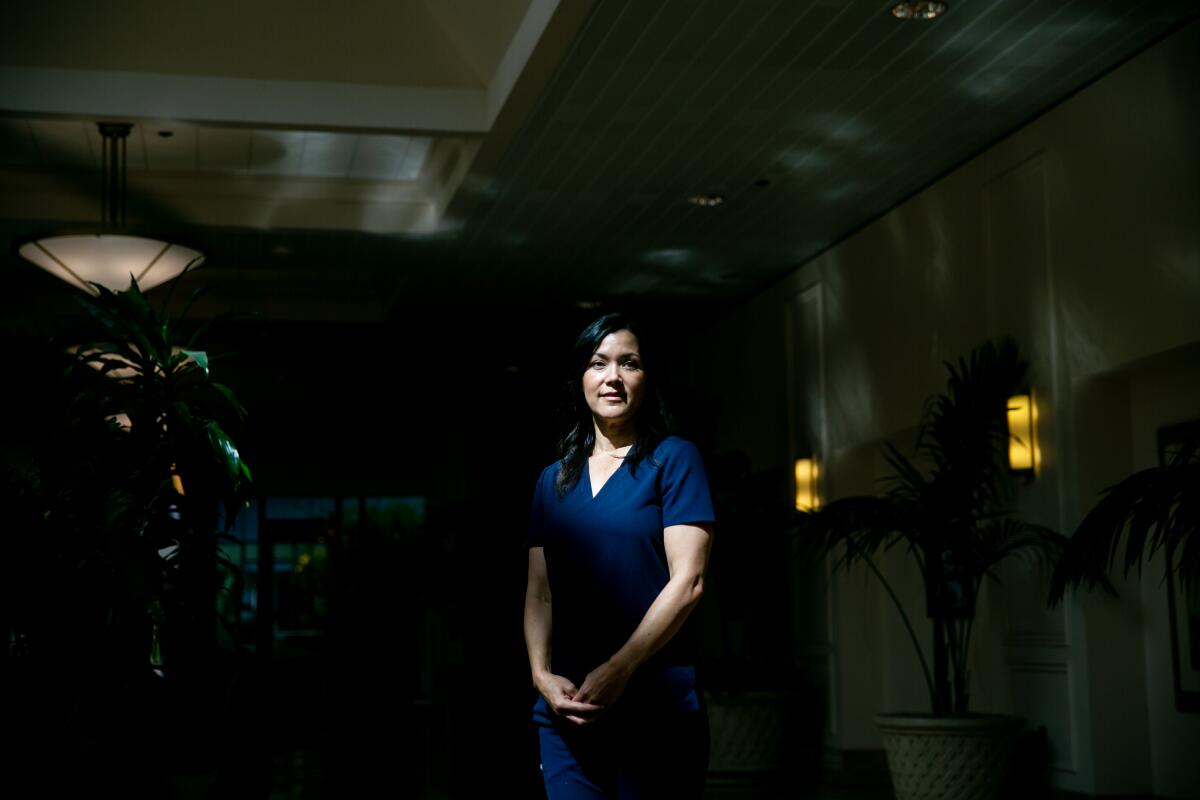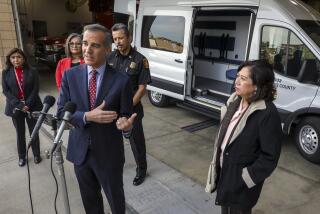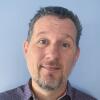For nurses at risk of suicide, program lets them seek help when they need it the most

A confidential UC San Diego counseling program aims to change stoic nursing culture into one that seeks emotional help when it’s needed most
Nurses die by suicide at a significantly higher rate than the general population, according to a recently released study from a team of researchers at UC San Diego.
Examining nationwide data on violent deaths from 2014, the only year for which occupation information is included, the team found that suicide rates were nearly 58% higher for female nurses and 41% higher for male nurses.
It’s no surprise to Dr. Judy Davidson, a UC San Diego nursing and psychiatry researcher who co-authored the paper. Society, she said, has long demanded a certain stoicism from nurses that is not expected from other professions in similar situations.
“The truth is that people do get scarred by these events. They talk about something that happened 10 years ago just as if it happened today,” Davidson said. “We haven’t been caring for ourselves properly. For example, policemen and firemen get time off if they witness a death, but nurses have been expected to just keep going on to the next patient with maybe a 10-minute break in between.”
But that’s starting to change. UC San Diego hospitals have been at the forefront of a growing push to make mental health care routine for professions rife with stress and pressure where healthcare providers observe and react to many of the most difficult moments that people experience.
In 2009, the university’s School of Medicine created the Healer Education Assessment and Referral program, or HEAR, which takes a proactive approach to self-care among healthcare workers.
The program urges employees to reach out for help when they’re starting to feel overwhelmed.
For Marti Neuenswander, that moment came about 18 months ago. She was caring for a dying patient she had come to know well over a long stay in the Bone Marrow Transplant Unit at UC San Diego Jacobs Medical Center, where she now works as an assistant nurse manager.
At the same time, she said, there was extra stress in her personal life. The combination gradually snowballed into a stress level too high to handle.
“I was feeling at that time like I would come to work and I would give my all and do my best to really connect with my patients, and then I would go home, and I would try to manage challenging situations there,” Neuenswander said. “I was feeling like I wasn’t getting a break, and I was starting to feel very distressed.”
That feeling, she said, jogged her memory about the HEAR program, which seemed to be getting good reviews. One confidential email later, and she was sitting with a counselor whose conversation and referrals to outside specialists gave her the pressure release valve she needed.
“She sat and took time with me and let me debrief with her and I felt very comfortable talking very openly about all aspects, work and home,” Neuenswander said.
There have been more than 500 referrals since HEAR started, a fact that makes UC San Diego psychiatry professor and researcher Dr. Sidney Zisook particularly proud. Having co-created the program with Dr. Christine Moutier, a former psychiatry professor now serving as medical director of the American Foundation for Suicide Prevention, Zisook said the aim of the program wasto reach medical professionals far before they have suicidal thoughts.
Culture change, the psychiatrist said, has been the most important factor. Hospital administration invites doctors and nurses to fill out encrypted self-assessments that are shared only with a narrow set of counselors and never with supervisors or others in positions of authority. By sending out surveys annually and by having administration encourage employees to speak up when they’re feeling anxious, asking for help starts to feel normal.
“We’re trying to do our best to make getting treatment for depression or substance use or whatever it might be less stigmatized and more available,” Zisook said.
Confidentiality has also been key.
Emailed surveys and the responses are encrypted, and the university works with a trusted third party in New York to handle the encryption process. That means that the university has a limited ability to respond to information that arrives in those encrypted emails. Technically, it’s possible for employees to make worrisome statements but refuse to come forward for help.
“Even if we see that somebody says, ‘I’m going to kill myself tomorrow, goodbye,’ there is nothing we can do to identify them if they don’t want to be identified,” Zisook said.
So far that scenario has not happened. Program designers say they believe that such radical confidentiality really helps. In fact, since the HEAR program started for doctors in 2009, not a single physician suicide has been reported. The program was extended to nurses three years ago, and like the case for doctors, UC San Diego is not aware of any subsequent suicides for nurses.
The story has been slightly less positive for medical students. There has been one suicide among medical students since 2009.
Ironclad confidentiality, Zisook said, probably has a lot to do with a willingness by employees to speak up. Some, he said, need to feel that whatever they say won’t get back to colleagues or supervisors.
“I think that we’ve been able to transition some of those people into treatment who otherwise would never have gotten in touch with us or responded to a survey that isn’t as truly confidential as this one is,” Zisook said.
But the HEAR program goes much deeper than connecting workers to mental health help. It is also designed to help front-line managers react to stressful situations, Davidson said. Managers are encouraged to run “emotional debriefings” designed to get co-workers talking to each other about stressful situations as they arise.
“Now they’re encouraged to raise their hands and we’re encouraged to watch each other to see if somebody needs a break,” Davidson said. “In the past, in this profession, we were encouraged to just suck it up and take it. That was the nature of the job.”
Already, the HEAR program has been emulated for doctors at several other locations, including UC Davis. The American Nurses Assn. recently voted to study policy changes around nurse suicide.
Sisson writes for the San Diego Union-Tribune.
More to Read
Start your day right
Sign up for Essential California for news, features and recommendations from the L.A. Times and beyond in your inbox six days a week.
You may occasionally receive promotional content from the Los Angeles Times.







